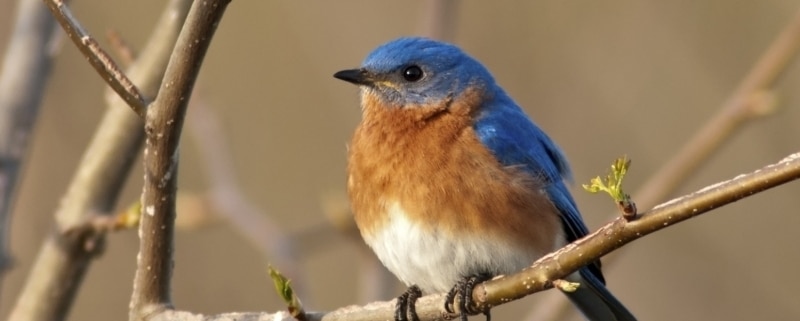Discovering, Teaching and Cycling through the Diversity of Birds — A Conservation Conference Recap
Discovering, Teaching and Cycling through the Diversity of Birds — A Conservation Conference Recap
On June 8-9, WHC welcomed over 400 attendees to Conservation Conference 2021, a virtual, live event that showcased how sustainability professionals, educators, advocates and artists around the world are addressing biodiversity loss and other timely environmental issues.

Scott is an Alexander Agassiz Professor of Zoology and Curator of Ornithology at Harvard’s Museum of Comparative Zoology, with broad research interests in evolution and biodiversity processes. He grew up in the Riverdale neighborhood of the Bronx, an area with high access to green space compared to much of New York City. He cites the early exposure that he had to nature and natural history as a guiding force that led him to a field with few Black professionals. In his keynote, Scott stated that “in order to do the best science, we need to have diverse perspectives.” He elaborated that diversity brings new ideas and research interests into academia — for example, an increase in women studying animal behavior led to a wealth of research on female animals’ roles in mating systems.
Scott is also committed to instilling a reverence for science and museums in students via immersive experiences. During his keynote, he described how the Museum of Comparative Zoology, which owns specimens of extinct birds, is a great way to convey the gravity of biodiversity loss to students. “When they hold a passenger pigeon or a Carolina parakeet,” he explained, “they realize that the species isn’t coming back.” Scott has also led students on research trips, funded by the museum, to biodiverse settings around the world. He explained that through travel, students get exposed not only to new green spaces (where they partake in field activities like bird recordings), but also to new cultures.
Further exploring the intersection of nature and diversity, Scott segued from discussing the importance of inclusive museums into a presentation on the 76-day cycling trip he took in summer 2020, during which he traveled 3,848 miles from Plum Island, Massachusetts to Sunset Beach, Oregon. The trip had been a lifelong dream of his, and when the Covid-19 pandemic canceled his academic engagements for the summer, he began planning the journey using maps from the Adventure Cycling Association.
The trip was challenging at times, entailing biking across varying terrain, from shorelines and other lowlands up to the Rocky Mountains, and through the steeply graded Puyallup region of Washington state. Scott camped whenever possible but found that many campgrounds were only open to RVers, having closed their restrooms because of the pandemic. The people he encountered, however, readily offered him resources like food, water and shelter. He also found support from a familiar source: while birding wasn’t a goal of the trip, he explained that the birds he observed, from dickcissels in the Midwest to sandhill cranes in the Rockies, were “a constant source of encouragement, the one constant that kept [him] grounded.” His first sighting of a western kingbird in South Dakota, for instance, gave him assurance that he was making good progress toward the West Coast.
While Scott set out to fulfill a personal dream, given the racial unrest of summer 2020, his trip soon took on a second purpose. “I couldn’t just sit idly by. I needed to participate somehow,” he explained. He started to affix signs to his bicycle, with messages like #BlackLivesMatter and #ShutDownSTEM (which referred to June 10, 2020, a day when STEM professionals were urged to break from lab work to reflect on the lack of diversity in their fields). He also carried signs from the Cornell Lab of Ornithology: “Birds Spark Hope” and “One Song, Many Voices.” Of the Cornell slogans, Scott said, “they capture some of the ways in which nature and natural history can be a unifying force in challenging times.” In addition to the signs, he used social media and one-on-one conversations to engage others in dialogue on inequity, explaining that making connections with people could help dispel misconceptions about movements like Black Lives Matter.
Traveling by bicycle allowed Scott to visit small towns that those traveling by interstate or airplane typically bypass. Noting an ideological divide between the urban and rural U.S., he took time to learn from those in the remote communities he visited. In his keynote, he emphasized that rural students are a key population for diversifying STEM fields, and that as we transition to a greener economy, it is critical to not leave behind communities that have found livelihoods in legacy industries like fossil fuels. While he and the people he met did not always share similar views, most were happy to engage in dialogue, and to support him on his journey. “If there’s anything I can say about the people I met,” he said, “it’s that there’s a huge amount of generosity in this country.” He went on to encourage attendees to appreciate the country’s vast natural and intellectual resources. Creating and protecting green spaces, and supporting equitable access to the outdoors and STEM fields, are critical to fostering this type of appreciation.
To learn more about Dr. Edwards, his research and accomplishments, visit https://edwards.oeb.harvard.edu/people/scott-v-edwards.
Recordings of Discovering, Teaching and Cycling through the Diversity of Birds and all other Conservation Conference 2021 sessions are available on the WHC Website.
